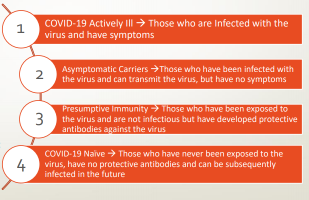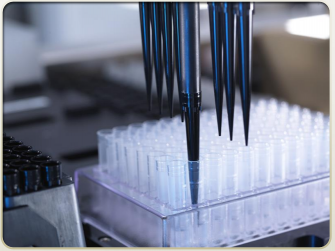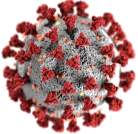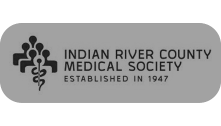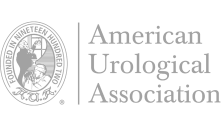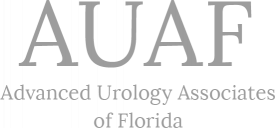COVID-19
Joseph P. Crawford M.D., F.A.C.S
It has become obvious that the Country as well as our County needs to step forward out of the shadows of the unknown and restart our lives safely. Our mission is to provide information and reassurance to the Treasure Coast community through the provision of Covid-19 antibody testing as necessary. The purpose of this presentation is to provide some of the basic background information that you will need to understand the importance of the pandemic and our response.
What is COVID-19?
- COVID-19 is a highly contagious virus that invades the cells of an individual’s respiratory tract.
- Multiple organ injury may result due to an individual's specific body response to COVID-19.
- Symptoms of infection range from asymptomatic to severe and life-threatening
- Why? Symptoms are based on your body’s reaction to the virus, as well as your body’s ability to trigger an overwhelming defense response.
- How is COVID-19 contracted?
- Physical contact with your hands and face after encountering the virus
- Being in close proximity with an individual that has been infected with the virus
- Bodily fluids, such as respiratory and nasal secretions
- Because COVID-19 may be contracted in various ways, using personal protective equipment (i.e. masks and gloves) and practicing social distancing will reduce your chance of contracting the virus.
What We Currently Know About COVID-19
- COVID-19 is known as a “novel” virus which means we have not seen a disease like this before.
- Currently, COVID-19 is being thoroughly studied so its weaknesses can be understood, and effective treatments can be developed.
- COVID-19 can be present and go undetected in our community far earlier than other common viruses.
- Because COVID-19 affects individuals differently, many may contract the virus but not experience any symptoms at all.
- Individuals in our community that have contracted the virus without experiencing symptoms are known as asymptomatic carriers.
- Asymptomatic carriers can spread the virus without knowing which increases the chance of infection, among others.
- It is expected that up to 20% of those who have been infected with COVID-19 will have subsequent respiratory diseases.
Why are we so concerned about Isolating COVID-19?
- We still have many unanswered questions regarding COVID-19, such as:
- Where did the virus start?
- Why did this virus start?
- What makes up COVID-19 that is different from other coronaviruses?
- What makes some of our older and younger patients more susceptible to the severe forms of the virus?
- Currently, we do not have a definitive cure or “magic bullet” for COVID-19.
- Effective therapies for the infection are available.
- While vaccine development is a major collaborative effort, involving academic, pharmacologic and research institutions, wide-spread availability of a safe and effective vaccine against this specific virus is months, if not longer, away.
- So, what should we do while more research is being completed?
- Follow the Safety Task Forces recommendations (i.e. practice social distancing, using PPE, handwashing, etc.).
- Complete COVID-19 Antibody Testing to determine if individuals diagnosed with COVID-19 have developed antibodies, as well as identify those that have been exposed to the virus and became asymptomatic carriers.
Covid-19 ver 5.1 6/
What is Antibody and Virus Testing?
- COVID-19 Antibody Testing is used to determine if individuals diagnosed with COVID-19 have developed antibodies, as well as identify those that have been exposed to the virus and became asymptomatic carriers.
- Nasal swab, sputum sample, or a saliva sample that tests for the COVID-19 virus DNA “RT-PCR”, The virus in those who have had symptoms of COVID-19 or have been in direct contact with COVID-19 infected patients.
Why is it important to test for COVID-19 Antibodies?
- Those who have been diagnosed and recovered from the virus need to test for the presence of COVID-19 antibodies which will help determine their level of antibodies present in their body and protective status.
- Goals of Antibody Testing
- To determine potential individual immunity to COVID-19
- To concentrate our contact-tracing of infection in our community and determine who are asymptomatic carriers
- To define future and social medical strategies that would be appropriate for our community
- To provide information of the efficacy of future vaccines and their ability to produce protective neutralizing antibodies
- To identify convalescent plasma donors
- Plasma donations are essential as they may be lifesaving for those who have had severe COVID-19 infections or reinfections
- To determine the safety of our community, especially high risk first responders and confined population facilities (i.e. adult care facilities and jails/prisons including correctional staff)
- To identify those who can safely return to social and work activities
How will Antibody Testing work in our Community?
- First, we will begin with the First Responders (Police, Sheriff, Corrections personnel, Fire/Rescue and Health Care workers).
- By the very nature of their work, these groups are on the front line and the performance of their duties may bring them in repeated and often prolonged exposure to those infected with or carrying the virus.
- Second, we will test those who are at increased risk with other illnesses, age or the nature of their habitation.
- Third, we will test those who anticipate close contact with others, based on their activities of daily living or anticipated future social, educational or community events.
- Fourth, we will test the general population to evaluate the prevalence of the virus and the effectiveness of our instituted treatment and preventive measures.




